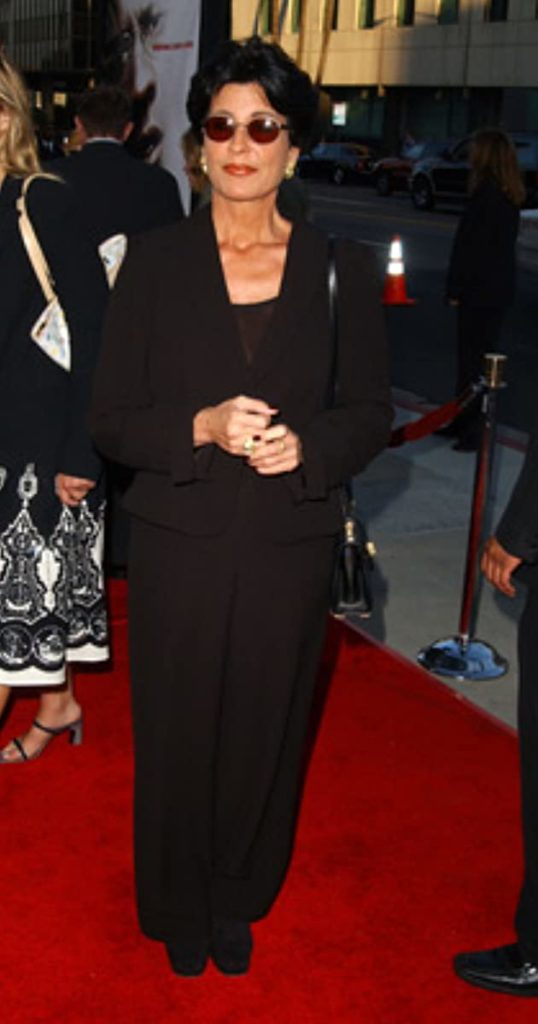Former American singer and actress Christina Sinatra, better known by her stage name Tina Sinatra, also dabbled in writing and film production. She was a well-known performer in the American performing arts scene in the middle of the 20th century.
Tina Sinatra, who was born to famous parents, the illustrious performer and actor Frank Sinatra, and his first wife Nancy, entered the music industry for the first time when she was 20 years old while continuously working on television programs.
She never showed the type of drive or brutal ambition that is typical of accomplished film actresses, despite acting always being her primary passion.
After publishing her book “My Father’s Daughter,” she ultimately went on to become a film producer, a theater agent, and a highly acclaimed memoirist. She seeks to improve the well-being of neighborhood dogs since she has a deep affection for animals.

Tina Sinatra’s Date of Birth and Parents
Christina Sinatra, often known as Tina, was born in Los Angeles, California, on June 20, 1948. She was the third and youngest child of Frank Sinatra, a legendary American singer from the 20th century, and Nancy Barbato Sinatra.
She has a brother named Francis Wayne Sinatra and an older sister named Nancy Sandra Sinatra. When her parents divorced and split, she was just three years old.
Tina Sinatra’s Husband
On January 26, 1974, Tina Sinatra wed musician Wes Farrell. In her father’s home at Caesars Palace in Las Vegas, the marriage was signed by both parties. On September 3, 1976, a divorce was the result.
Richard Cohen was her second spouse; they were wed from January 30, 1981, until January 11, 1983.

Tina Sinatra’s Career
Tina Sinatra’s decision to use music as her platform was only logical given that she was born and raised in a musically rich environment.
With the release of the 1968 album “The Sinatra Family Wish You a Merry Christmas,” which included five songs, including the well-known “Santa Claus Is Coming to Town,” she made her musical debut.
She worked with her sister Nancy on the song “O Bambino (One Cold and Blessed Winter)” while also enrolling in Jeff Corey’s acting lessons.
She appeared on television with her brothers and Dean Martin’s kids on the latter’s program.
She co-starred with Hampton Fancher in the 1969 television miniseries “Romeo and Julia 70.” She had been residing in Germany throughout this time.
She finally came back to the country and kept taking acting lessons with Corey. She subsequently made cameos in episodes of “Adam-12,” “It Takes A Thief,” and “Mannix,” among other shows.
Although Tina often received praise for her acting abilities, she lacked the desire and the initiative to advance it and lift it to new heights.
She worked with Arnold Stiefel as a theater agent. She had served as a representative for American actor and television personality Robert Blake.
She moved into the world of cinema and television production and appeared in the 1977 television movie “Fantasy Island,” which served as the basis for the later, popular “Fantasy Island” TV series.
Tina took up the role of executive producer for the 1992 CBS television miniseries “Sinatra,” which was based on the life and career of Frank Sinatra.
Tina served as producer on the 2004 remake of Frank Sinatra’s acclaimed 1962 movie “The Manchurian Candidate.” She received one Primetime Emmy Award nomination.
Written by none other than Frank Sinatra’s own daughter Tina, “My Father’s Daughter: A Memoir,” which was first released in 2000, is a sharp, honest picture of the extremely intimate and human side of the pop hero.
It’s a stunning shift from Frank’s much-hyped public life, his ideal, glamorous existence on the fast lane, and his various personal relationships that had always been fodder for the tabloids.
Jeff Coplon co-wrote it. This is an honest and passionate story of her father’s emotional isolation, failed relationships, anxieties, poor life decisions, struggles with his artistic identity, and—most importantly—his fundamentally human character with all its highs and lows, positives and cons.
The biography was well-received and is regarded as a highly perceptive account of Frank Sinatra’s life and character.


